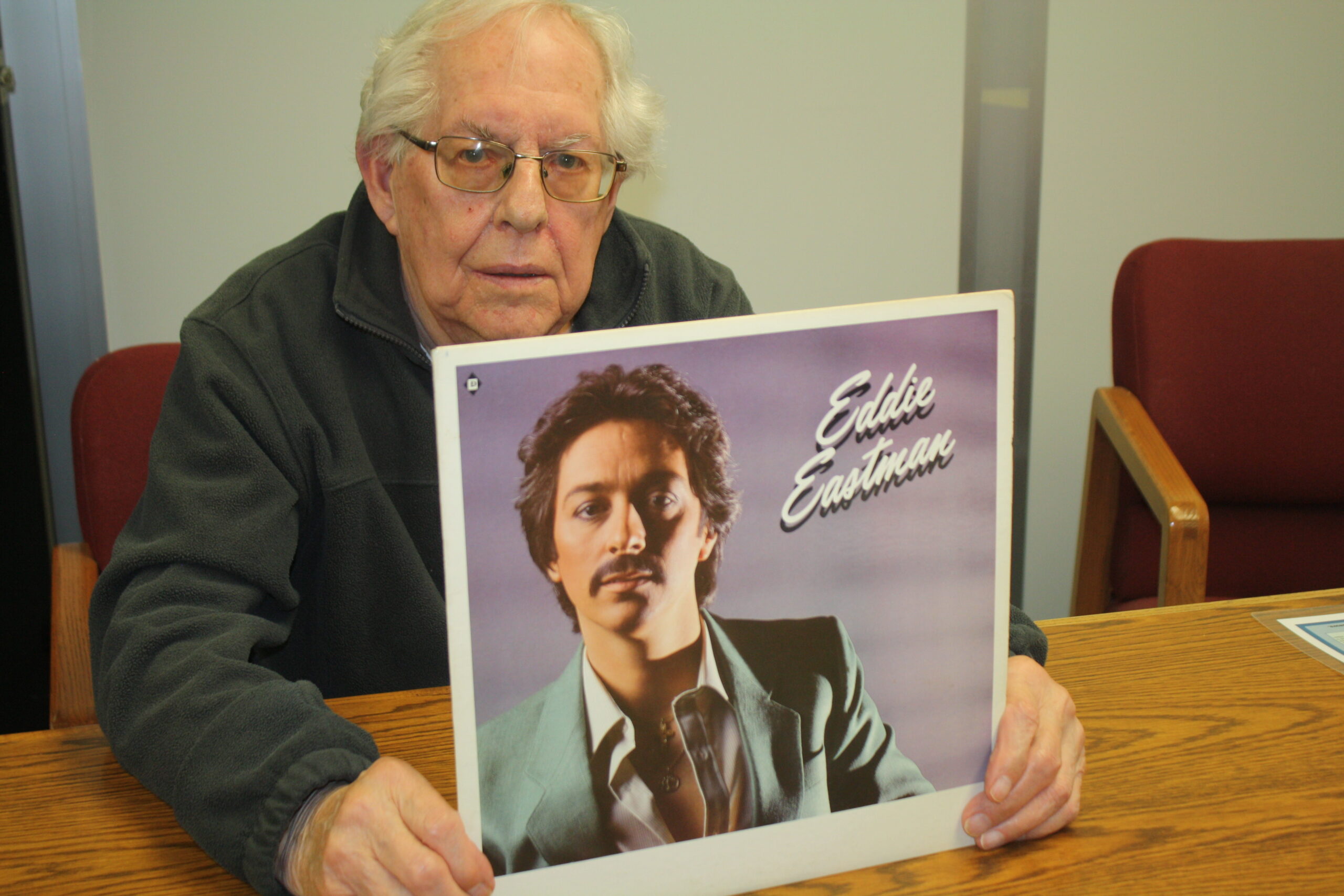
NEW SWEDEN, Maine – One of Maine’s oldest and most accomplished country music songwriters is an Aroostook County man most people have never heard of.
Don Peters, 88, a New Sweden resident, estimates that he has written 225 country and gospel songs since his teen years, with several recorded by many artists with large followings throughout the U.S., Canada and Europe, including one of Maine’s iconic country singers.
And he did it all without ever leaving the county that he calls home.
Peters was born in 1936 and grew up in Colby, an unorganized territory three miles from Caribou. He always listened to country music on his parents’ radio, and in his early 20s, decided to try pitching songs to record labels and maybe earn some extra money.
The ambitious young songwriter sent his recordings to various labels in the U.S. and Canada, whose names he got from music magazines. A little-known Canadian rock and roll artist named Rod Barton was the first to record one of Peters’ songs, called “Cold Feet,” in 1962 but Peters’ big break came four years later.
In 1966, Peters sent a song called “Working on the County Road” to the president of Rodeo Records in Montreal, Canada, who passed along his songs to Bob King. An Ottawa native, King had been putting out hit records in Canada since 1954 at age 20. King briefly performed in West Virginia with the U.S. country duo Wilma Lee and Stoney Cooper, who are now in the Country Music Hall of Fame in Nashville.
King had already returned to Canada when he recorded “Working on the County Road” about a man in the Aroostook County Jail forced to repair local roads for no pay as part of his jail sentence. The song rose to number 2 on Canada’s country music charts.
“‘The County Road’ is probably my favorite,” Peters said. “It was the first one that gave me any success.”
King later recorded six more songs that Peters wrote, including “Louisiana Swampman” and “The Revenooer’s Daughter,” the latter of which reached number 17 on Canada’s country music chart.
With a stroke of luck, and a little help from longtime friend Carl Doughty of Presque Isle, Peters got to hear Maine’s most famous country singer Dick Curless perform one of his songs, a jingle for a local bank.
In the 1980s, Doughty worked at the now-defunct bank Aroostook Trust, which was looking to record a new jingle for local radio. Doughty knew Curless, a fellow Fort Fairfield native, so he called up the country singer, who was on his way to Nashville to record a new album. Peters sent Curless a cassette tape of his jingle, “Working at the County Bank.”
The one-minute radio commercial featured Curless’s booming baritone voice singing: “We’re working at the county bank to serve your needs. / The people at The County Bank are here to please. / So come on in, / make yourself at home, / talk to us about that loan. / We’re working at The County Bank to serve your needs.” Curless then talks about how Aroostook Trust can assist its local customers before the commercial ends.
Peters met Curless several times, first when the singer played at the former NCO Club in Bangor in the late 1980s. Peters, Doughty and family members visited Curless at his home, where he displayed in his yard five railroad cars and a firetruck he had restored.
Curless, most known for another Aroostook song, “A Tombstone Every Mile,” reunited with Peters at several NCO Club shows at Loring Air Force Base in the ‘80s.
“He was always a nice guy every time I met him,” Peters said about Curless.
Though most of Peters’ songs did not make the music charts, he’s more proud of the connections he has made with musicians, including with one of Canada’s biggest country stars of the 1980s.
Eddie Eastman, a native of Terra Nova, Newfoundland, won Top Male Country Vocalist at the Juno Awards, Canada’s biggest music awards show, in 1981 and ‘82. Before his first big win, Eastman recorded Peters’ “Southern Comfort,” a song that Bob King, Norwegian country singer Teddy Nelson and Canadian artist Lloyd Snow would go on to record.
Peters has not seen Eastman, who now lives in Nashville, since 2011, but Doughty fondly recalled meeting Eastman for the first time in Fredericton not long after he recorded “Southern Comfort.” Thanks to Peters, Eastman also got a gig playing with Tanya Tucker at Loring’s NCO Club in the mid ‘80s.
“We met him backstage before he sang [in Fredericton]. He walks out and he’s five foot two and I’m thinking, ‘How much sound is going to come out of this little fella?'” Doughty said. “But, my lord, he had a booming voice like you wouldn’t believe.”
For Peters, some of his other memorable songs include the 1993 gospel tune “King or Carpenter,” recorded by Canadian singer Dee Hardgrove, “Let’s Bring It Back Again” by Canadian husband-and-wife duo Gary Fairburn and Donna Moon, and two versions of “Lonesome Stretch of Hottop Blues” by Irish artist Seamus Delany and Canadian country singer Lloyd Snow.
In the last several decades, Snow, who died in 2022, recorded 10 of Peters’ songs, including “A Country Song For You,” “Here Comes the Sunshine” and “Two Timing to a Two Step.” Nelson, who was popular in his native Norway, also recorded “Louisiana Calling.”
Peters has not written a song in at least a year or two but the most recent recording of one of his songs occurred last month when Lloyd Snow’s son Lukas Snow, also a country singer, recorded “Lonesome Stretch of Hottop Blues.”
Throughout his songwriting career, Peters remained in Aroostook County. Starting at age 20, he worked for potato farmers but then became a bookkeeper at the now defunct Colby Starch Company in Caribou two years later. Starting in 1964, he spent the rest of his career as a bookkeeper for local car dealerships. He retired in 2015.
“I suppose it makes me really lucky and makes me feel good, but I don’t think it has changed me any,” Peters said about his songwriting success.
Despite Peters’ modesty, Doughty said that his friend’s songs stand the test of time, even among modern country songs.
“His songs always tell a story, and that’s something that today’s songs just don’t have,” Doughty said.







